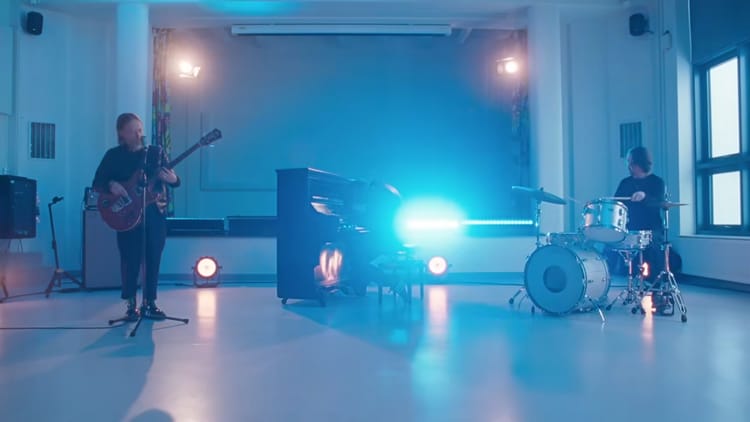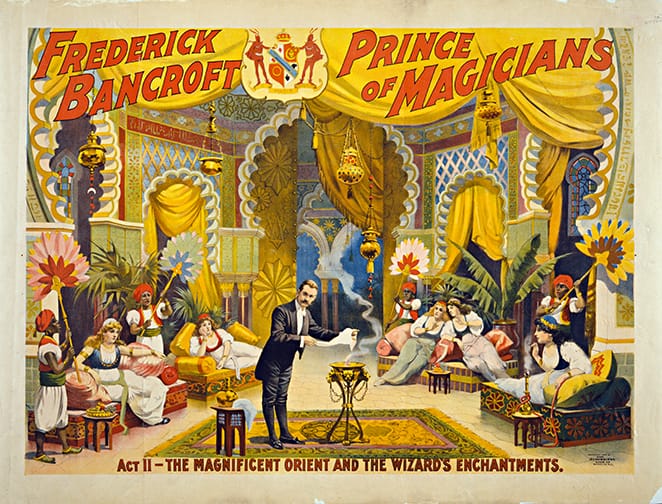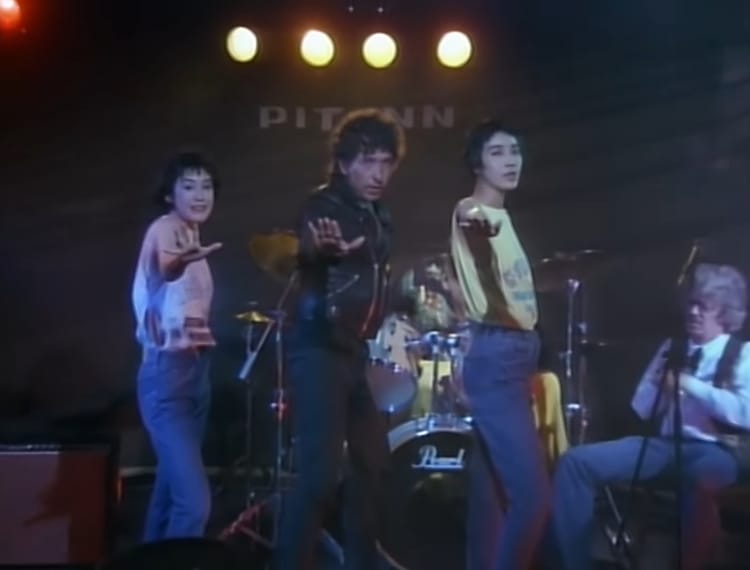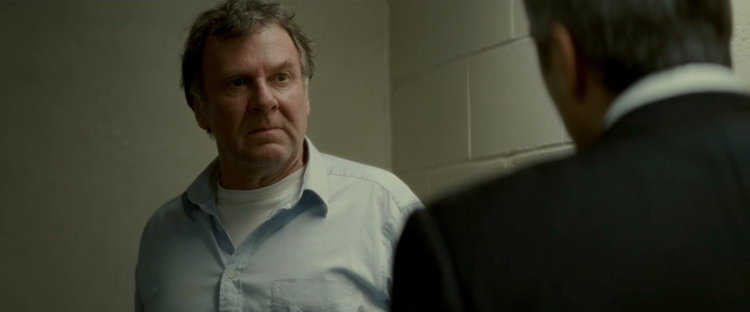"Aftersun" Reviewed
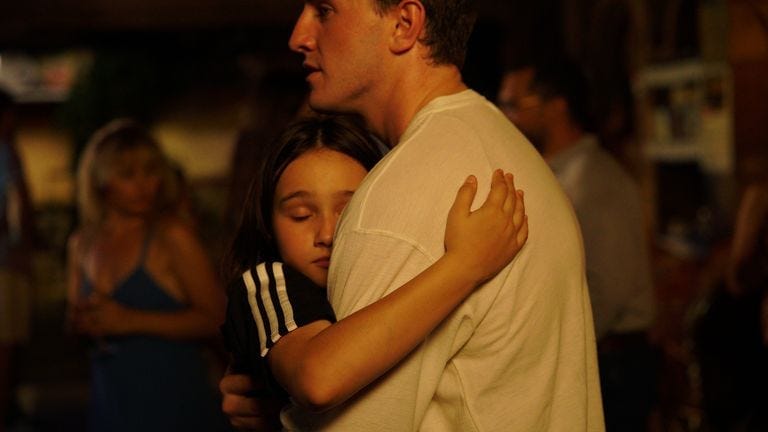
Review: Aftersun
Early in Aftersun, writer/director Charlotte Wells’ first feature, and a film pulled heavily from her own childhood recollections, we watch eleven-year-old protagonist Sophie (Frankie Corio) fall asleep in the hotel bed that’s serving as hers while on holiday with her father, Calum (Paul Mescal). As we hear Sophie drift off, her wakeful breathing replaced by the softer, more even breath of sleep, we watch Calum step out onto the balcony to smoke a cigarette. Wells allows us to observe Calum, clearly gripped with some ambiguous form of anxiety or inner pain, but we’re kept on the far side of this barrier, remaining most intimate with the child for whom he bears such massive responsibility. It’s a poignant moment that seems to nicely sum up much about the film’s intended effects.
Then, the scene continues—or, at least, the camera continues rolling. We watch Calum smoke, and we listen to Sophie breathe. At first, the shot’s length is noticeable; soon, it’s numbing. This will hardly be the last time in this deliberately small and low-incident story that Wells allows scenes to extend far past what would seem to be their natural cut point, and while the effect contributes to the film’s drifting, woozy atmosphere, it leaves long stretches where little narrative or character ground is being gained, pockets of empty air in an already thin story.
Much of Sophie’s holiday with Calum is glimpsed through the home movie footage they capture together on a mini-DV handycam (a couple of brief framing scenes suggest the main action takes place in the early 2000s) and there’s something powerful and haunting about this perpetual toggle between typical cinematic style and intensely intimate point-of-view footage crowded with artifacts that create an unbreachable barrier between present and memory. Wells has identified what feels like a genuinely original manner of image-making to connote memory play, and it’s effective each time.
Perhaps due to its by now inescapable evocation of found-footage horror, though, the disorienting video effect contributes to an oppressive mood of dread that’s draped over the film like a fire blanket. That mood is further heightened by a scratching, reverb-heavy score, as well as some ambiguously ominous camera moves. Before long, it’s hard not to see Aftersun as the countdown to some childhood-defining trauma–suspicions Wells shamelessly courts through Calum’s inexplicable behaviors, which play not as gestures of genuine characterization but rather as a heavy authorial hand manipulating her characters to maximum dramatic portent.
The inescapable sense of latent danger seems out of step with the story, which primarily concerns Sophie’s low-stakes coming of age, including first hesitant but generally safe steps into the world of teenage socializing, attention from boys her own age, and various other ways of coming out of her shell, all of which only contribute to the impression that Calum is incapable of doing the same. The same story could be told with any number of tones, from wistful nostalgia to kitchen-sink realism, and the choice to make the version that plays like the march to a preordained tragedy is curious to say the least.
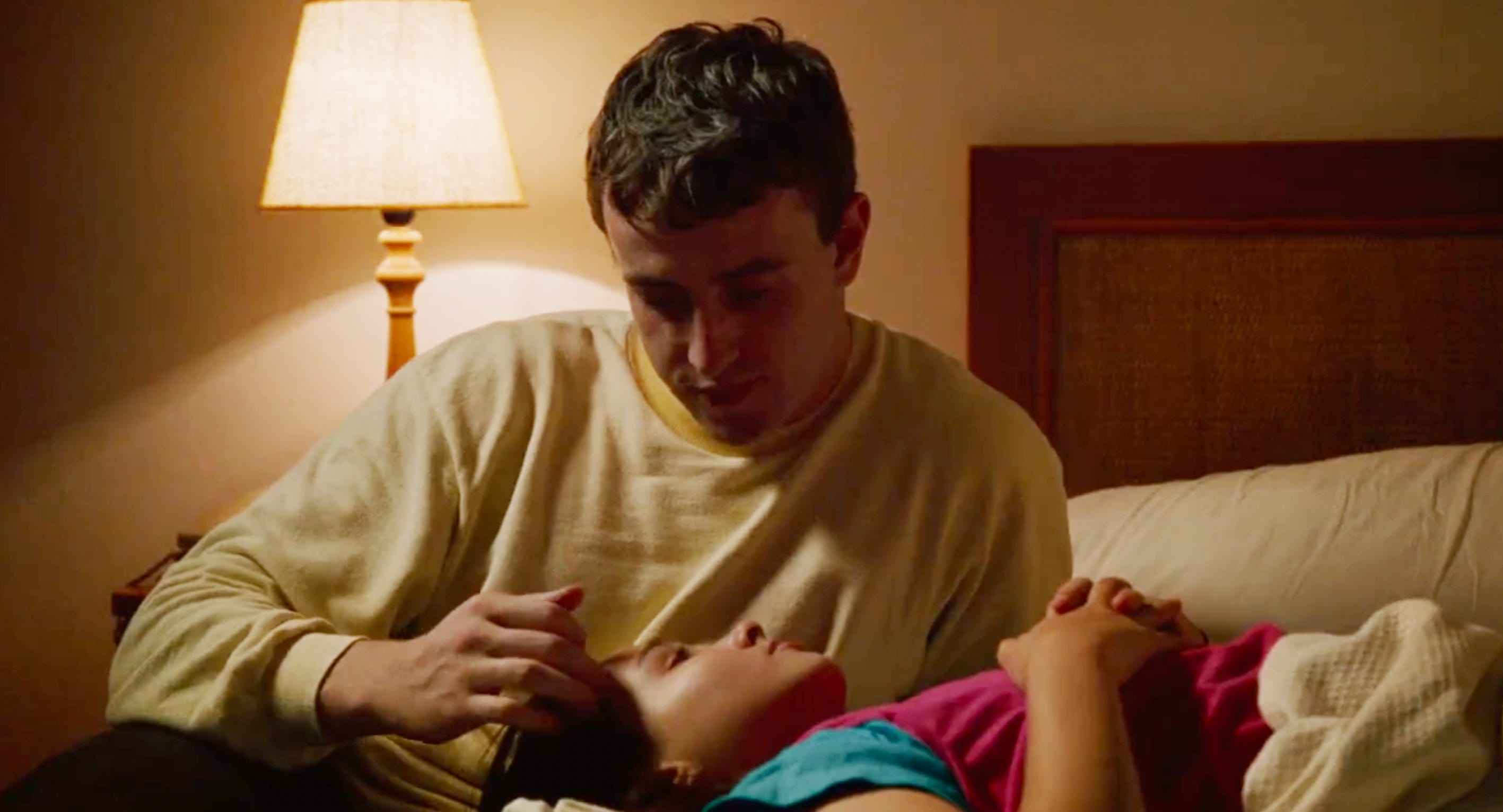
Late one night, Calum sits on Sophie’s bed, stroking her forehead and assuring her, “You have time.” This would seem to be the heart of the matter: Calum gazes with awe upon all the time laid out before Sophie, an endless sea of possibility, one it seems he’s wasted his own swim through—at least by his reckoning. “I can’t see myself at 40,” he says at one point beyond Sophie’s earshot. “Surprised I made it to 30.” The scene on the bed is poignant, perhaps the film’s most effective (and a marked contrast to a climactic sequence that pays off a motif of dreamspace dancing with a moment I can only describe as grotesque hysteria). In the scant moments when Aftersun can put aside the portent in favor of being merely profoundly sad, it manages to sing. Unfortunately, too often, it makes its points so insistently they bounced off me for the sheer force rather than sinking in for a true impact like the most effective films should.
If there’s anything as trite as a message in Aftersun, it might be the fact that being a parent—and, as in Calum’s case, a father living far from his child and ex-partner—is an unimaginably heavy responsibility, and even on a good day, it can feel impossible to remain up to the task even half the time. But in the best of cases—as in the moments of quiet grace, like Calum leading Sophie in a tai chi session while gazing across a mountain vista—you might find some way to meet in the middle as human beings lucky enough to share the same air for a time. But the more accessible the film tries to make its themes, and the more obviously it underlines its intended effects, the more difficult it becomes to engage with. Where is the space for emotional mystery in Aftersun? Where is the room to dream?
Aftersun is in limited release tomorrow, October 28.
Sundry Ephemera
This weekend I took my two older kids to see Lyle, Lyle, Crocodile, and though I approached warily, I found myself thoroughly charmed. Throughout, I couldn’t help comparing the movie to last year’s Clifford the Big Red Dog, which took a beloved children’s book and hit it with an 18-wheeler’s worth of bad taste (I’ll go to my grave remembering the moment the vet tells Clifford’s owner to stick a thermometer in a place that “rhymes with nuthole.” You know, for kids!)
Lyle, Lyle, Crocodile, by contrast, strikes me as basically timeless family entertainment with almost nothing but good vibes (OK, I’m baffled by the movie’s extremist anti-healthy-food stance; Michelle Obama is Lyle’s sworn enemy). As for the humans orbiting the eponymous bescarved reptile, I wouldn’t mind if Scoot McNairy, Constance Wu (as, respectively, Mr. and Mrs. Primm, new owners of Lyle, Lyle’s domicile), and Javier Bardem (as Lyle’s eccentric partner/exploiter Hector P. Valenti (star of stage and screen)), were all nominated for Oscars. Do I mean this sincerely? Who knows! There’s something about watching a good movie with your kids that makes it an automatic five-stars–I won’t pretend I can effectively review this movie. I had a blast, the Pasek and Paul songs offer exactly the pixie-sticks rush of empty calories you can count on from Hollywood’s most talented hacks, it’s a great time with kids. Five stars, or maybe like 2.5, I really have no idea.
Meanwhile, every few years I’m suddenly and unexpectedly seized by the urge to listen exclusively to the Ghost of Paul Revere for a week or two, and I’m well and truly in the jaws of that compulsion right now. The recently-defunct Portland, Maine outfit specialized in northeast roots music—the song I’m spinning most obsessively this week, “The Ballad of the 20th Maine,” was recently declared the official state ballad of Vacationland (though apparently there was some pro-Confederacy pushback—ain’t that just the way)
I don’t listen to a lot of cool music and, accordingly, the Ghost of Paul Revere is not cool. But they do have a lot of songs involving stomping and harmonies, one of which happens to be my favorite anthem for a world seemingly determined to burn itself down…
Incidentally, Paul Revere was my great-great-great-great-great-great grandfather, and it often bums me out to see how his name is used by bad actors to support their own fringe political nonsense. So it’s nice to have at least one good thing named after my seemingly perfectly decent ancestor (a claim I make based on precisely nothing, so if you have conflicting information…I mean, say it if you have to, but who will you really be helping?). It’s a shame they disbanded, but they left behind eight albums released in ten years, so there’s plenty to listen to while I hope for a reunion.
Oh yeah, also…
I really loved Eric Anders’ essay on queer thriller Siege for BW/DR’s B-Movies issue.
And speaking of the B-Movies issue, Frank Falisi took on Ed Wood and the transgressive power of “bad” art. It is, typically for Frank, dazzling.
